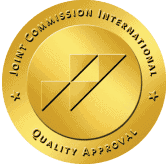You deserve compassionate, evidence-based treatment that addresses both the physical and psychological aspects of kratom addiction. Professional treatment centers understand that kratom dependency affects nearly 26% of regular users, and you don’t have to face this challenge alone. Take your first step toward recovery today.
What are the warning signs of kratom addiction?
You may be experiencing kratom dependency if you notice changes in your daily life, relationships, or physical health. Professional treatment centers recognize that kratom addiction often develops gradually, making it difficult for you to identify the problem early. Understanding these warning signs can help you make a well-informed choice about seeking treatment.
Physical warning signs you might experience:
- Needing larger amounts of kratom to achieve the same effects
- Experiencing withdrawal symptoms when you stop using kratom
- Muscle aches and joint pain between doses
- Insomnia or disrupted sleep patterns
- Sweating and hot flashes
- Runny nose and flu-like symptoms
- Digestive issues including nausea and constipation
- Tremors or shaking hands
- Rapid weight loss or gain
- Chronic fatigue when not using kratom
Behavioral and psychological signs you may notice:
- Spending significant time obtaining, using, or recovering from kratom
- Continuing kratom use even when it causes problems
- Neglecting work, school, or family responsibilities
- Isolating yourself from friends and family
- Feeling restless, anxious, or irritable without kratom
- Experiencing mood swings or emotional instability
- Having strong cravings for kratom throughout the day
- Making unsuccessful attempts to quit or reduce use
- Lying about your kratom consumption
- Financial problems related to purchasing kratom
If you recognize these signs in yourself or a loved one, professional help is available. Treatment centers specializing in kratom addiction understand the unique challenges you face and can provide the support you need.
What happens during kratom withdrawal?
You may experience uncomfortable withdrawal symptoms when you stop using kratom, which can make quitting on your own extremely challenging. Professional treatment centers understand that kratom withdrawal typically begins within 6 to 12 hours after your last dose, with symptoms peaking around days 2 to 4.
Physical withdrawal symptoms you might experience:
- Severe muscle aches and joint pain
- Insomnia and sleep disturbances
- Excessive sweating and hot flashes
- Runny nose and watery eyes
- Nausea and vomiting
- Diarrhea and stomach cramps
- Tremors and muscle spasms
- Headaches and dizziness
- Loss of appetite
- Extreme fatigue
Emotional and psychological symptoms you may face:
- Severe anxiety and panic attacks
- Depression and feelings of hopelessness
- Intense irritability and anger
- Restlessness and agitation
- Difficulty concentrating
- Strong cravings for kratom
- Emotional instability
- Social withdrawal
- Feelings of nervousness and tension
- Mood swings
The withdrawal process typically lasts 7 to 10 days, but you may experience lingering effects for several weeks. Professional treatment centers provide medical supervision and support to help you manage these symptoms safely and comfortably.
How serious are the health risks of kratom addiction?
You face significant health risks when kratom addiction goes untreated, affecting both your physical and mental well-being. Treatment centers recognize that kratom dependency can lead to serious medical complications that require professional intervention.
Immediate health risks you may encounter:
- Respiratory depression and breathing difficulties
- Liver damage and hepatotoxicity
- Seizures and neurological complications
- Cardiac arrhythmias and heart problems
- Severe dehydration from vomiting and diarrhea
- Dangerous interactions with other medications
- Risk of overdose, especially when combined with other substances
- Psychosis and hallucinations
- Severe weight loss and malnutrition
- Increased risk of accidents due to impaired judgment
Long-term consequences you might face:
- Chronic liver disease and organ failure
- Permanent neurological damage
- Cardiovascular disease and heart failure
- Severe depression and suicidal thoughts
- Complete social isolation and relationship breakdown
- Loss of employment and financial ruin
- Legal problems related to kratom possession in San Diego
- Increased risk of using other dangerous substances
- Cognitive impairment and memory problems
- Compromised immune system function
Professional treatment centers recognize that early intervention can significantly reduce these health risks. You don’t have to wait until you experience severe complications to seek help.
The most effective kratom addiction treatment approaches
Professional treatment centers use evidence-based methods specifically designed to address kratom dependency. You’ll receive comprehensive care that targets both the physical addiction and underlying psychological factors contributing to your kratom use.
Medical stabilization and withdrawal management:
Treatment centers provide medically supervised care to help you safely navigate kratom withdrawal. You’ll receive 24/7 medical monitoring, symptom management medications, and nutritional support to minimize discomfort and prevent complications.
Behavioral therapy and counseling:
You’ll participate in individual and group therapy sessions designed to help you understand your addiction patterns and develop healthy coping strategies. Cognitive-behavioral therapy helps you identify triggers and change thought patterns that lead to kratom use.
Comprehensive treatment programs available:
Treatment centers offer multiple levels of care to meet your specific needs. You may start in a partial hospitalization program (PHP) for intensive daily treatment while returning home each evening. As you progress, you might transition to an intensive outpatient program (IOP) with multiple weekly sessions, and eventually to a standard outpatient program (OP) for ongoing support.
Holistic healing approaches:
Professional treatment centers integrate complementary therapies to support your overall recovery. You’ll have access to mindfulness training, stress management techniques, nutritional counseling, and physical fitness programs that promote long-term wellness.
Family involvement and support:
Treatment centers recognize that addiction affects your entire family. You’ll participate in family therapy sessions and educational programs that help rebuild relationships and create a supportive home environment for your recovery.
Evidence-based treatment programs for kratom addiction
Treatment centers offer specialized programs designed specifically for kratom addiction recovery. You’ll receive personalized care that addresses your unique needs and circumstances while providing the structure and support necessary for lasting recovery.
Drug rehab program:
You’ll receive comprehensive residential treatment in a safe, supportive environment. This program provides 24/7 medical supervision, intensive therapy sessions, and peer support to help you build a strong foundation for recovery. The residential setting removes you from triggers and temptations while you focus entirely on healing.
Partial hospitalization program (PHP):
PHP offers you intensive daily treatment while allowing you to return home each evening. You’ll attend therapy sessions, medical appointments, and educational groups for 6-8 hours per day, 5-7 days per week. This program provides structured support while helping you maintain some connection to your daily life.
Intensive outpatient program (IOP):
IOP provides you with structured treatment while allowing greater flexibility in your schedule. You’ll attend therapy sessions and support groups 3-4 times per week for 3-4 hours per session. This program works well if you have work or family commitments but still need intensive support.
OP offers you ongoing support and therapy with the most flexible scheduling. You’ll attend individual counseling sessions and support groups 1-2 times per week. This program provides long-term support as you maintain your recovery in your daily environment.
Treatment centers design these programs to work together as a continuum of care. You may start in drug rehab or PHP and gradually step down to IOP and then OP as you build confidence and skills in your recovery.
Why professional treatment works better than quitting alone
You significantly increase your chances of successful recovery when you choose professional treatment over attempting to quit kratom on your own. Treatment centers understand that kratom addiction involves complex physical and psychological factors that require specialized care.
Medical safety and supervision:
Professional treatment centers provide medical monitoring that keeps you safe during withdrawal. You’ll receive medications to manage symptoms, IV fluids for dehydration, and immediate medical intervention if complications arise. Attempting withdrawal alone can be dangerous and potentially life-threatening.
Comprehensive support system:
Treatment centers surround you with a team of addiction specialists, medical professionals, therapists, and peer support. You’ll have access to 24/7 support when cravings or challenges arise, unlike trying to manage recovery in isolation.
Evidence-based treatment methods:
Professional treatment centers use proven therapeutic approaches specifically designed for addiction recovery. You’ll receive cognitive-behavioral therapy, motivational interviewing, and other evidence-based treatments that address the root causes of your addiction.
Relapse prevention planning:
Treatment centers help you develop detailed relapse prevention strategies before you complete treatment. You’ll learn to identify triggers, develop coping skills, and create action plans for high-risk situations. This preparation significantly reduces your risk of returning to kratom use.
Addressing underlying issues:
Professional treatment centers identify and treat co-occurring mental health conditions that may contribute to your kratom use. You’ll receive comprehensive care for depression, anxiety, trauma, or other psychological factors that influence your addiction.
Specialized care for kratom addiction
Treatment centers serving the San Diego area understand the unique challenges you face with kratom addiction in Southern California. You’ll receive care that addresses local factors affecting your recovery while providing access to specialized resources and support networks.
Understanding local kratom regulations:
Professional treatment centers help you navigate San Diego’s kratom ban and legal implications. You’ll receive guidance about legal compliance during recovery and support in addressing any legal issues related to kratom possession or use.
Culturally sensitive treatment approaches:
Treatment centers in the San Diego area provide culturally competent care that respects your background and values. You’ll work with diverse treatment teams who understand the cultural factors that may influence your addiction and recovery process.
Community-based recovery support:
Professional treatment centers connect you with local recovery communities and support groups specific to kratom addiction. You’ll build relationships with others who understand your experience and can provide ongoing encouragement and accountability.
Integration with local healthcare systems:
Treatment centers coordinate with San Diego healthcare providers to ensure continuity of care. You’ll receive seamless transitions between treatment levels and ongoing medical support from local physicians familiar with kratom addiction.
Family and social support services:
Professional treatment centers offer specialized programs for families affected by kratom addiction. You and your loved ones will participate in educational sessions, family therapy, and support groups designed to rebuild relationships and create healthy family dynamics.
Contact Assure Recovery
Don’t wait another day to begin your recovery from kratom addiction. Help is available now, and you deserve professional treatment that addresses your unique needs with compassion and expertise.
Call Assure Recovery today at (833) 530-0291 to speak with an addiction specialist who understands kratom dependency. You’ll receive a confidential assessment and learn about treatment options that can help you reclaim your life.



